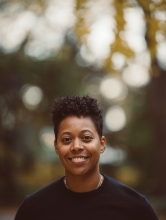By Jules Csillag and Lindsey Foster
This is part 3 of a 3-part series about reopening, education, and disability. You can read part 1: The Here & Now & part 2: Focus on Liberation, Resist, and Cultivate Joy.
"I want to ask you what it would mean not to 'accommodate' or 'think about inclusion.' From the moment you start thinking about inclusion, as Sara Ahmed points out, you're pointing out that somebody is not at home, that somebody has to extend themselves to you, to welcome you, to include you. You're almost reinforcing the power dynamic. What happens if you assume equity?" -Alice Sheppard (she/her)
The past school year and a half wasn't all sunshine and rainbows for access either. In addition to not all students having a safe and comfortable place to stay, not all families had access to reliable WiFi or devices. This is particularly unfortunate since “we can learn to develop technology and set up structures to ensure that everyone has access" as Haben Girma (she/her) has highlighted.
If schools didn't view the "beliefs and cultural values of White, Western European, protestant, heterosexual, able-bodied cis-gendered males as the normative standard,"all students could have opportunities to learn, to thrive, and to be celebrated. When considering access, intentionality is essential– what makes one person's needs "special" is that their needs are unsupported, systemically and by design. Regardless of someone's access needs, educators are invited to presume competence, allow students to learn and grow from their experiences, and push back on "[t]he misconception that sitting, speaking, or being able to answer questions in an errorless way is necessary to learn academics....and so much else" as TJ (she/they/them/her) stated.
Therefore, in addition to the strategies below, we invite you to look around your learning spaces: What are some potential barriers that disabled individuals may face? Be sure to look for potential barriers for diverse disabilities. Then, as a class, actively work towards removing these barriers from your physical and mental spaces. Encourage participation from all students in ways that are relevant to them (so as to avoid a charity model), and work as a community so this is sustained and ongoing work.
Typically, when we think of access and schools, people's minds may go to audiobooks, extended time, or hearing aids. These are essential tools for some students' learning, but they're not everything. Eddie Ndopu (he/him) highlights the importance of collective access & liberation when he states, “I am not just talking about ramps, braille and sign language...This is also about giving people with disabilities access to things like joy, love and intimacy." (Also a focus of this Metro blog on Lessons Learned from Black Communities.) As in the previous post, our tips below are informed by disabled Black individuals, whom we hope you'll keep learning from. If you're not sure where to start, the links within this series may be a good launchpad
Embrace students' autonomy
“It’s been my experience there are far too many persons who have proximity to disability but lack the actual lived experience that would inform their lens in meaningful and comprehensive ways. That is very problematic. These persons are determining what constitutes best practices...without that informed lens from first-person, directly-impacted sources." -Heather Watkins (she/her)
| Instead of... | Try... |
| Assuming you know what your students want or need (e.g. how they should learn, what is "good for them," what's best for their body and/or mind) | Supporting students' self-determination, or right to make decisions for/about themselves. This can include the tips from the previous blog's tips about resistance & solidarity, and:
|
Honor difference(s)
"Many think of assistive technology & policy change as the solution but these efforts are not adequate to address the stigma [of] disability. This is why people with disabilities need to look beyond these approaches to sustainable revolutionary change."- Lateef McCleod (he/him)
| Instead of... | Try... |
| Segregation, poorer quality of education for disabled students, and deficit-based ways of considering disability | Celebrate differences and recognize how essential they are to communities:
|
Interdependence
“My name is Riah, & I need a team of people in order to function properly. If I would have known that this was a regular way for people to operate, I would have been able to avoid a significant amount of trauma & distress. Normalize needing supports; On big & small scales." -Riah Person (they/she)
| Instead of... | Try... |
| Focusing on and valuing independence above all | Value interdependence (not to be confused with lack of autonomy)
|
We hope that this series (Part 1: The Here & Now, Part 2: Focus on Liberation, Resist, and Cultivate Joy, and Part 3: Beyond Accommodations) has validated what you're already doing in your learning spaces, and given you some food for thought...and action. To that end, we invite you to share examples of each of these principles, practices, or tips in your spaces! Redesign your classroom spaces with accessible seating? Organize a protest with community members? Co-create a lesson about disability justice with your students? Share it with NYU Metro Center (on Twitter or Instagram), or the authors (Jules on Twitter or Instagram; or either author via their emails, below).



